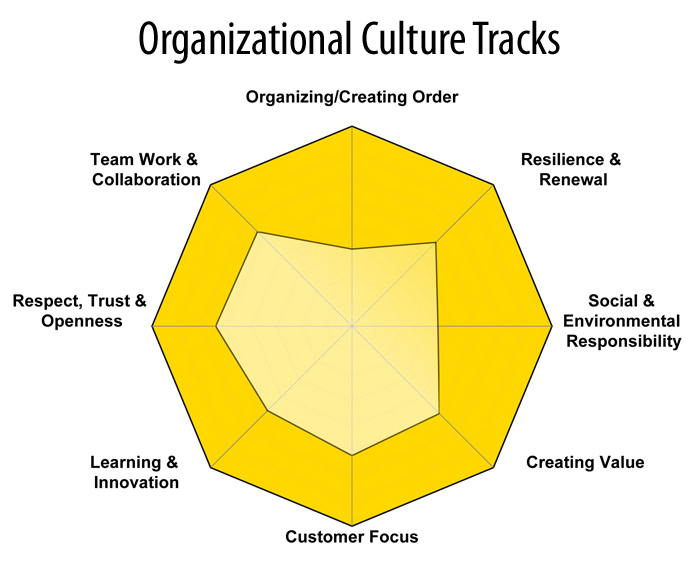The Value Mentors Organizational Consulting offerings are based on the understanding of a significant shift in our contemporary management and leadership paradigms.
This shift may be represented as an evolution from hierarchical leadership to values based leadership and is increasingly exemplified in networked organizations.
Organizational, Team & Leadership Development:
Many leaders develop a set of values or values statements that are intended to both motivate their employees and guide their cultures. While many organizations boast about their principles and the core values, there are very few that really abide by them with any consistency. This is largely because their stated values are aspired or desired values rather than their actual values and therefore do not accurately represent their true motivations. The result is that employees frequently greet typical organizational values statements with suspicion and cynicism.
In contrast, we believe that effective 21st century leaders are those who:
- Know their real values and related leadership styles and act on them.
- Help their employees clarify their real values in order to support their desire for meaningful work and engage their commitment and creativity.
- Effectively align their organization’s values and culture with its purpose, structure, strategies and goals.
- Support the development of the values of synergy, cooperation, collaborative individualism and social responsibility and seek to hire people who have these values
The learning objectives for the program are:
- To develop Values Based Leadership (VBL) skills at multiple points in the networked organization.
- To acquire a common language of values and perspective for understanding the inter-relationship of values, organizational culture and beliefs.
- To understand why VBL is a key strategy for 21st century organizations.
Values Based Strategic Planning
Values based strategic planning is based on the understanding that there is a close connection between the successful execution of your organizational strategy and the actual values of the people charged with its execution.
The VM strategic planning model identifies strategic three value tracks that underpin three related types of strategic focus.
For example:
| Value Tracks | Strategic Focus | |
| Control Values | Operational Excellence | |
| Relationship Values | Customer Partnership | |
| Developmental Values | Innovation & Product Leadership |
Each of the above value tracks contains multiple values that are revealed by our assessment methodology. Our CRD (Control/Relationship/Development) values report identifies the dominant value competency for a group or team within an organization and can help to determine which types of values naturally support the likelihood of that group successfully implementing and achieving a particular strategy.
Values Based Organizational Culture Development:
“Culture isn’t just one aspect of the game, it is the game. In the end, an organization is nothing more than the collective capacity of its people to create value.”
Louis Gerstner
Former CEO, IBM
An organization’s culture is the essential factor its ability to execute its strategy and achieve business goals and objectives. An organization’s actual and embodied (lived) values are the keys to understanding its culture and how it may be led to evolve in a desired direction.
The Value Mentors Organizational Culture Field Map report provides the essential data on the 8 primary Values Tracks composing an organization’s culture. These include:
- Organizing/Creating Order
- Creating Value
- Teamwork & Collaboration
- Resilience & Renewal
- Respect/Trust/Openness
- Customer Focus
- Social & Environmental Responsibility
- Innovation & Learning

